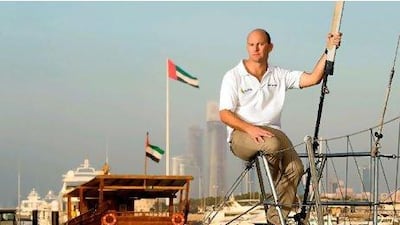Work hard, play hard. My parents were self-made in business and taught me the value of hard work. Sailing is a very time-consuming sport and you need to put in a lot of attention to detail. The work is never done and there is no such thing as a standard working day or working week. However, it is also good to let off steam and pat yourself on the back when you've done well.
Always be polite. Whoever you are dealing with, it costs nothing to smile or to be friendly and courteous. Good manners can go a long way. I believe that if you treat other people well then there is a far greater chance that they will reciprocate.
The team is far more important than the individual. Very few sports demand as much teamwork as sailing, and I don't just mean the sailors on the boat. Everybody on the whole team must know that what they say and do and how they act can significantly affect the performance of the race boat and the team. There is no room for personal agendas on a world-class sailing team, and I try to lead by example whenever I can.
Never give up. Always try to see the bright side. I am fiercely competitive and hate to lose at anything. Even when things have gone wrong or the situation looks bleak, I will always try to see the positive side. In the Sydney 2000 Olympics, we finished last at all the build-up regattas and we ranked as outsiders, but ended up missing the gold medal by only one point because we never gave up.
Communication is king. On a sailing boat, effectively giving the right information in a storm in the middle of the ocean can be a matter of life and death. In a close race it can be the difference between winning and losing.
As told to Jemma Nicholls

